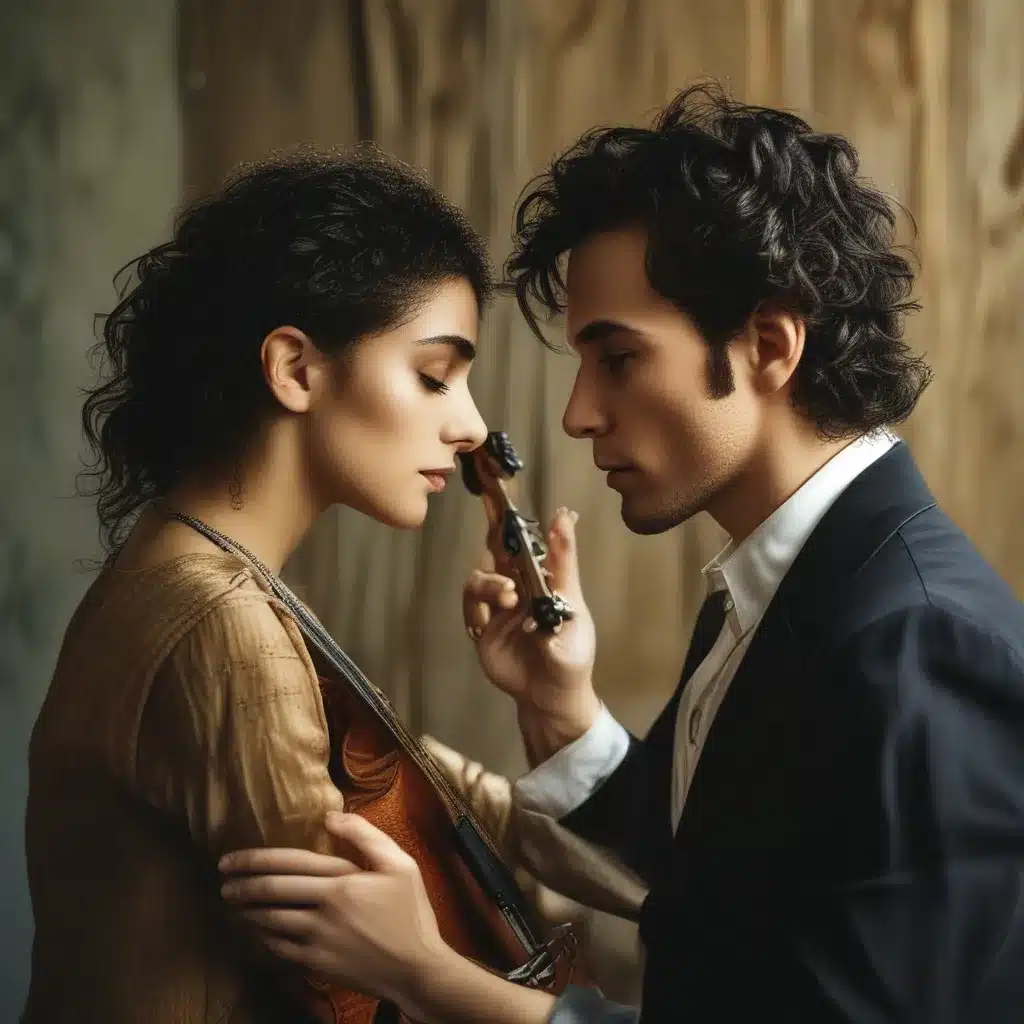
Blurring the Lines Between Stage and Reality
As I settle into my seat at the Musical Theater Center, the lights dim and the curtain rises, unveiling a world where the line between performance and reality becomes deliciously blurred. This is the realm of the actor-musician – individuals who seamlessly merge the art of acting with the mastery of musical expression, creating a captivating and multifaceted theatrical experience.
In the spirit of this dynamic fusion, let me share with you the story of Seoul Switch, a Freaky Friday-esque short film that dives deep into the nuances of Asian and Asian American identity. Written and directed by Liann Kaye, the film stars Kevin Woo, a renowned K-pop idol and Broadway performer, in a dual role that challenges the very notion of what it means to be an artist in today’s ever-evolving landscape.
Challenging Preconceptions
As I delve into the film, I’m immediately struck by the way it subverts the expectations we often hold about the glamorous lives of K-pop idols. Woo’s character, DJ, is an insecure Asian American from Ohio, a stark contrast to his counterpart, Moon, a fictional K-pop superstar in Korea. This clever juxtaposition invites us to question the assumptions we make about the lives of those who seem to have it all.
In a playful twist of fate, DJ and Moon find themselves switching places, each forced to navigate the unfamiliar terrain of the other’s world. What unfolds is a hilarious and poignant exploration of identity, privilege, and the sacrifices made in pursuit of artistic dreams.
Navigating the East-West Divide
One of the most compelling aspects of Seoul Switch is its ability to shine a light on the unique challenges faced by Asian and Asian American artists. As Woo’s characters navigate the cultural divide between the East and the West, we’re confronted with the complexities of their respective identities.
DJ, the Asian American, grapples with feelings of insecurity and a sense of not fully belonging in either his country of origin or the land of his ancestors. Meanwhile, Moon, the K-pop idol, must confront the realities of the industry’s grueling demands and the personal toll it takes on his well-being.
| DJ (Asian American) | Moon (K-pop Idol) |
|---|---|
| Insecure about his identity and sense of belonging | Faces the intense pressures and sacrifices of the K-pop industry |
| Struggles to find his place in the world | Desires a more “normal” life outside the spotlight |
| Yearns for the perceived glamour of the K-pop idol life | Longs for the freedom and autonomy that DJ enjoys |
These contrasting experiences highlight the nuanced realities that Asian and Asian American artists must navigate, challenging us to reconsider the assumptions we often make about their lives and careers.
Embracing Duality and Complexity
At the heart of Seoul Switch lies a powerful message about the importance of embracing duality and complexity within the artistic realm. As Woo’s characters grapple with their respective identities, we’re reminded that the true essence of an artist lies not in a single, easily defined persona, but in the rich tapestry of their lived experiences.
Just as the actor-musician blends the disciplines of acting and music, Woo’s dual roles in Seoul Switch demonstrate the inherent duality that exists within us all. We are not one-dimensional beings, but complex individuals shaped by the intersections of our cultural heritage, personal experiences, and aspirations.
The Power of Perspective
One of the most striking aspects of Seoul Switch is its ability to shift our perspective, encouraging us to view the world through the eyes of those whose experiences may differ from our own. By immersing us in the lives of DJ and Moon, the film invites us to step outside our own biases and preconceptions, and to truly empathize with the unique challenges faced by Asian and Asian American artists.
In doing so, Seoul Switch reminds us that the power of art lies not only in its ability to entertain, but in its capacity to foster greater understanding and to challenge the status quo. By exploring the nuances of identity and the delicate balance between individual dreams and societal expectations, the film encourages us to reflect on our own assumptions and to cultivate a deeper appreciation for the diverse experiences that shape the world around us.
The Evolving Landscape of Musical Theater
As I exit the theater, my mind buzzes with the insights I’ve gained from Seoul Switch. It’s a poignant reminder that the world of musical theater is evolving, embracing new voices and perspectives that challenge the traditional boundaries of the art form.
The actor-musician dynamic, as exemplified by Woo’s captivating performance, is a testament to the power of blending disciplines and defying expectations. In this ever-changing landscape, the ability to navigate the complexities of identity, to embrace duality, and to shift perspectives becomes crucial not only for the artists themselves, but for the audiences who seek to engage with and be transformed by their work.
At the Musical Theater Center, we are committed to fostering an environment that celebrates this dynamic interplay between acting and music, embracing the rich tapestry of stories and perspectives that artists like Kevin Woo bring to the stage. By doing so, we hope to inspire the next generation of performers to push the boundaries of what’s possible, to challenge preconceptions, and to create work that resonates deeply with audiences.
So, as the curtain falls on Seoul Switch, I’m left with a renewed sense of excitement for the future of musical theater – a future where the actor-musician dynamic continues to evolve, where duality and complexity are celebrated, and where the power of perspective can unlock new realms of understanding and appreciation.

